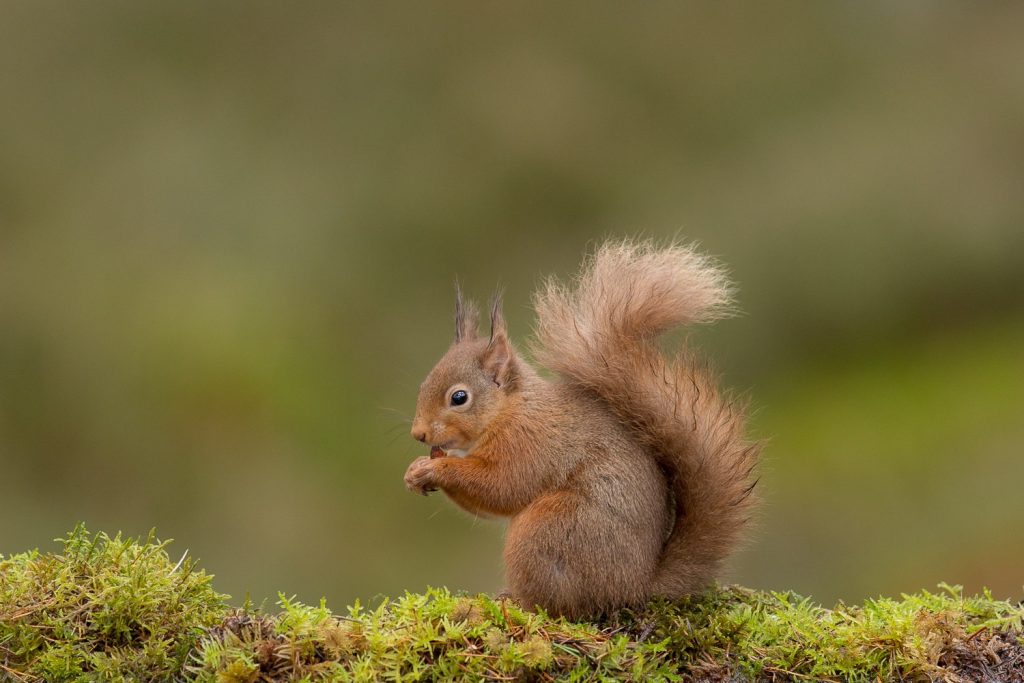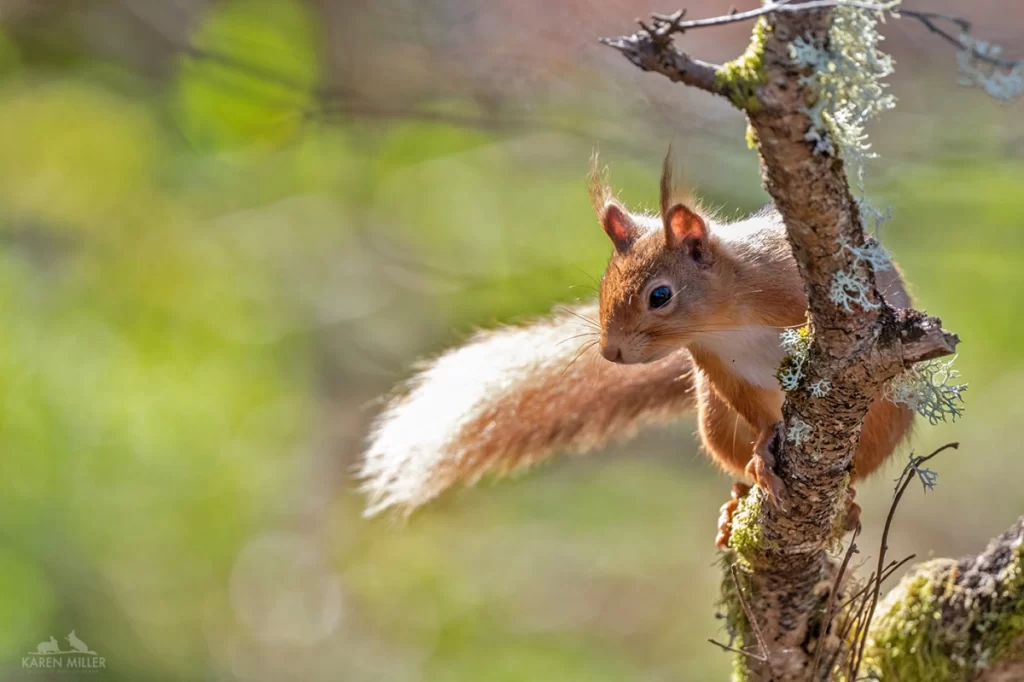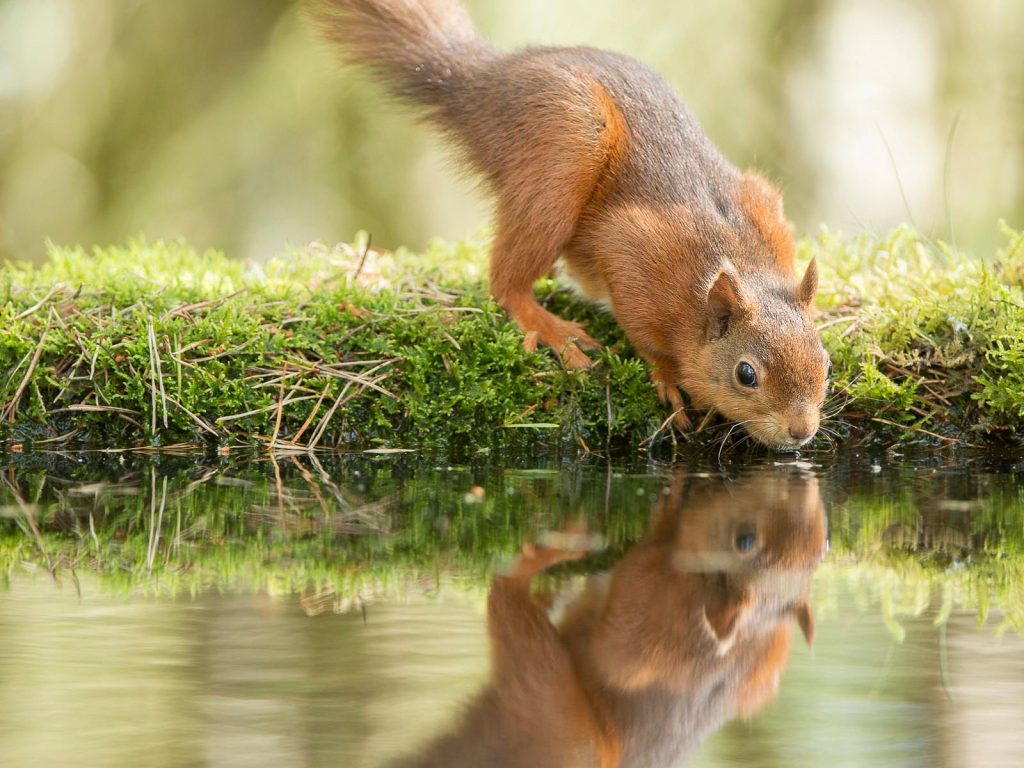Squirrels are a common sight in many natural environments. They are small, agile, and energetic creatures that are well adapted to life in the wild. As for their diet, squirrels are known to have a diverse diet that varies depending on the season and the availability of food. In the wild, squirrels are known to eat a variety of foods, including nuts, seeds, fruits, insects, and fungi.

In this article, we will take a closer look at the diet of squirrels in the wild and the adaptations that have helped them to survive on a diverse array of foods.
Types of Food Eaten by Squirrels
Squirrels are known to eat a wide variety of foods, including nuts, seeds, fruits, insects, and fungi. Here is a closer look at some of the specific foods that squirrels eat:
Nuts: Nuts are a staple of a squirrel’s diet. Squirrels are known to eat a variety of nuts, including acorns, hickory nuts, walnuts, and pecans. They have strong teeth and jaws that are well-suited for cracking open the hard outer shells of nuts.
Seeds: Squirrels also eat a variety of seeds, including sunflower seeds, pumpkin seeds, and pine seeds. They will also eat the seeds of many different types of plants, including grasses and wildflowers.
Fruits: Squirrels are known to eat a variety of fruits, including apples, berries, and grapes. They are particularly fond of sweet fruits and will often strip a tree of its fruit in order to store it for later.
Insects: Squirrels are omnivores and will eat insects when other food sources are scarce. They are known to eat a variety of insects, including beetles, caterpillars, and grasshoppers.
Fungi: Squirrels will also eat a variety of fungi, including mushrooms and truffles. Fungi are a rich source of nutrients for squirrels and can provide them with important vitamins and minerals.

Adaptations of Squirrels
Squirrels have a number of adaptations that have helped them to survive on a diverse array of foods. Some of these adaptations include:
Strong Teeth and Jaws: Squirrels have strong teeth and jaws that are well-suited for cracking open nuts and seeds. Their teeth are constantly growing, which helps to keep them sharp and strong.
Large Cheek Pouches: Squirrels have large cheek pouches that they use to store food. This allows them to gather large quantities of food at once and store it for later.
Agile Climbing Skills: Squirrels are excellent climbers and are able to climb trees and other structures with ease. This allows them to access food sources that other animals are unable to reach.
Ability to Digest Cellulose: Squirrels are able to digest cellulose, which is a tough fiber found in many plant materials. This allows them to extract nutrients from fibrous plant material, such as nuts and seeds.
Ability to Store Food: Squirrels are able to store large quantities of food in preparation for winter. They will bury food in the ground or store it in tree cavities, which allows them to survive when food sources are scarce.

Role of Diet in Squirrel Behavior
The diet of squirrels plays an important role in their behavior. For example, squirrels are known to spend a significant amount of time gathering and storing food in preparation for winter. They will also defend their food sources from other squirrels and animals that may attempt to steal their food.
Additionally, the diet of squirrels can impact their reproduction and survival. For example, female squirrels require a diet that is high in calcium in order to produce healthy offspring. Squirrels that have access to a diverse range of food sources are more likely to survive and reproduce than those that have limited food sources.
Squirrels are well adapted to life in the wild and have a diverse diet that includes nuts, seeds, fruits, insects, and fungi. Their adaptations, such as strong teeth and jaws and the ability to store food, have helped them to survive on a diverse range of foods. The diet of squirrels plays an important role in their behavior, reproduction, and survival, and understanding their diet is essential for those who wish to observe or care for these fascinating creatures.